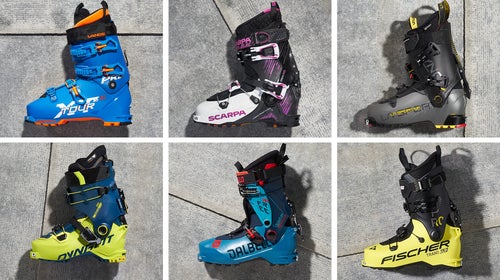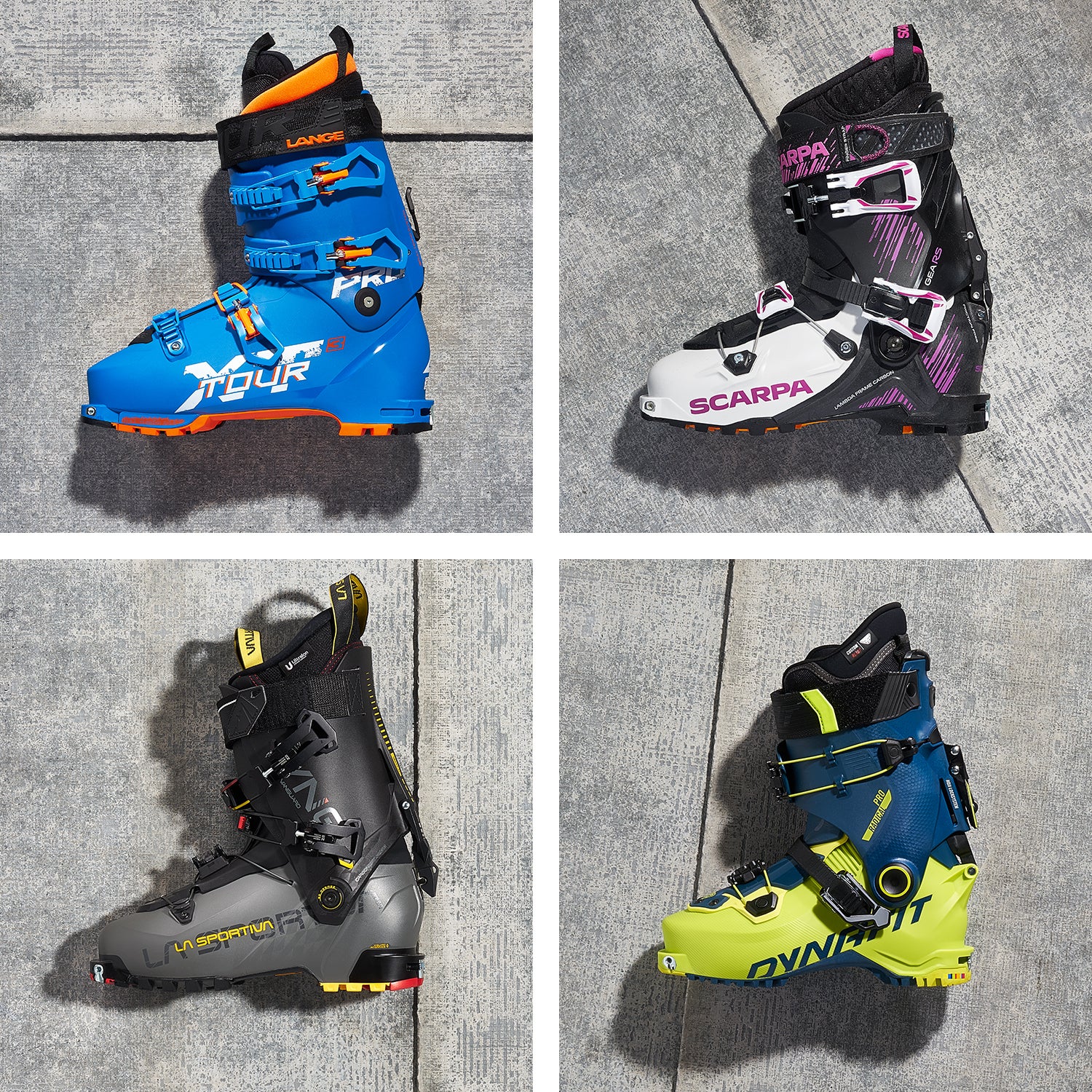When you can’t bring the people to the gear, bring the gear to the people. Last winter, rather than our usual 60-person gear-test week at Powder Mountain, Utah, we set up six COVID-appropriate test pods in mountain towns across the U.S. Our crew consists of patrollers, guides, editors, and other lifelong skiers. Instead of five bell-to-bell days, we spent two months moving gear from one pod to another. More time meant more touring, which really let us put these backcountry ski boots through their paces.
Looking for more backcountry ski boots? Check out our newest list for the latest tech in 2023.
Dynafit Radical Pro ($800)
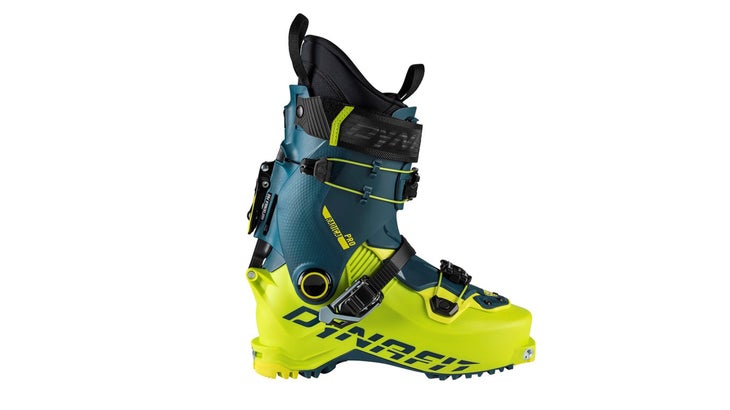
Dynafit’s designers took the brand’s stiff, narrow Hoji Free Tour, lightened it, and used foot-mapping technology to hone the shell’s shape for a broader fit range. Also new: a 120-flex Grilamid shell (for both men and women) that is more reliable in a wider array of temperatures. As a result, testers found it skied with all the power of its predecessor but with better snow feel. Thankfully, the brand’s proprietary transition mechanism remains: simply undo the top buckle to throw the Radical automatically into a 60-degree walk mode. The grippy Pomoca sole is ideal for ridgeline scrambles. 6.1 lbs, 25–31.5
La Sportiva Vanguard ($899)
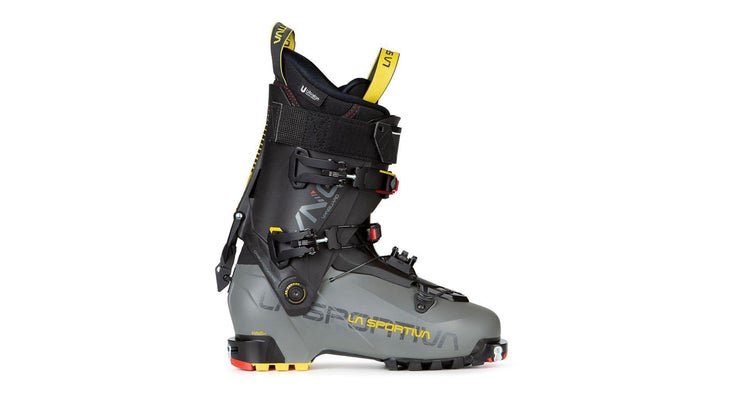
The 130-flex Vanguard (115 for women) is La Sportiva’s first step in the direction of four-buckle boots. It sports a V-shaped cuff to reduce rotational twisting without limiting walk-mode range (63 degrees of it), and the integrated power strap and top buckle boost control in variable conditions. The shell, made from castor-seed based Pebax Rnew, performed consistently in a wide temperature range. 6.0 lbs, 24–31.5
Dalbello Quantum Free Asolo Factory 130 ($950)
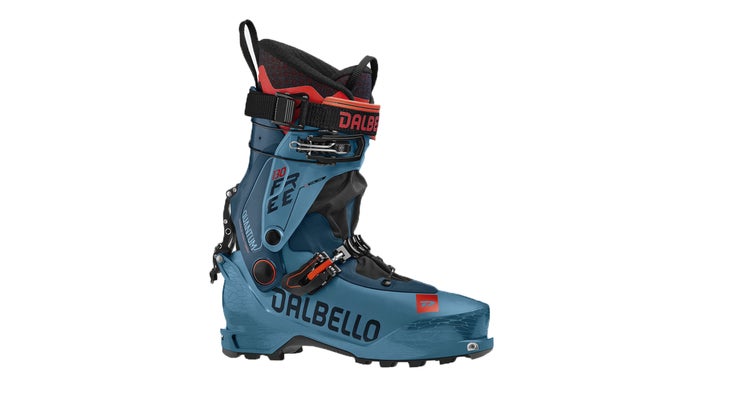
A tongueless, two-piece cuff allows the Quantum to initiate turns with the power of a four-buckle model but still walk without friction. The bonded, shock-absorbing polyamide shell, with carbon fiber below the foot, means it also skis amazingly damp at speed. That damp feel gets a further boost from the plush liner and reinforced tongue. Flip the simple spring-loaded switch to activate a walk mode with a massive 65-degree range of motion. 5.6 lbs, 24.5-30.5
Scarpa Gea RS ($800)
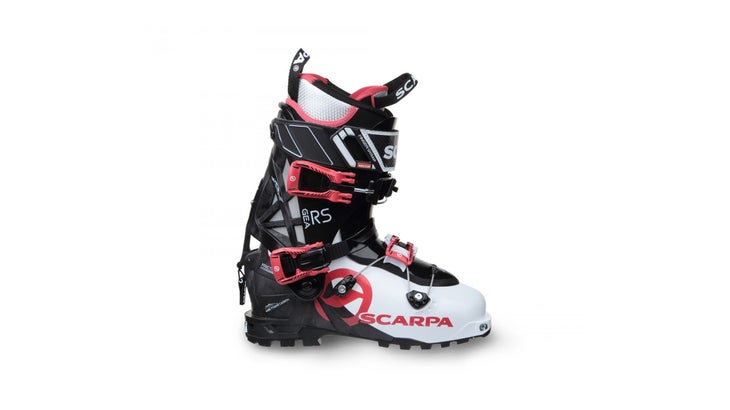
The update to this 120-flex boot (and the men’s 125-flex ) now boasts a stiffer material, Grilamid Bio. Otherwise, designers retained our favorite features, including a 101-millimeter last (ideal for wide feet) and a ratcheting heel strap that offers excellent downhill control and climbing security. The boot also features a reinforced Intuition Pro Flex liner that adds power in downhill mode. Articulation near the Achilles in tour mode yields 60 degrees of motion. 5.6 lbs, 22.5–27
Lange XT3 Tour Pro ($950)
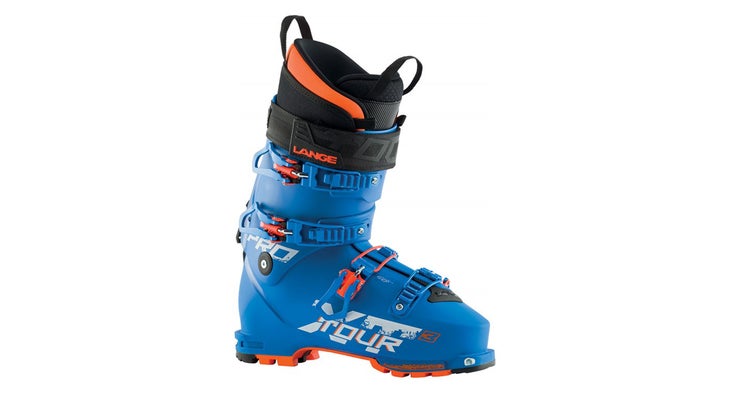
A half pound lighter than Lange’s touring-specific XT3 130, the Tour Pro (also a 130 with 53 degrees of range) is for backcountry purists who want great downhill performance. “It skis like a Lange but walks like a Scarpa,” one veteran tester quipped. Tourability comes from the liner—light EVA foam with a plastic tongue—and from a gas-injected polypropylene boot board that’s highly shock absorbent. The XT3 Tour also has the same 53-degree touring range but walks easier than its predecessor thanks to a more rockered sole. 6.7 lbs, 24–29.5
Fischer Transalp Pro ($850)
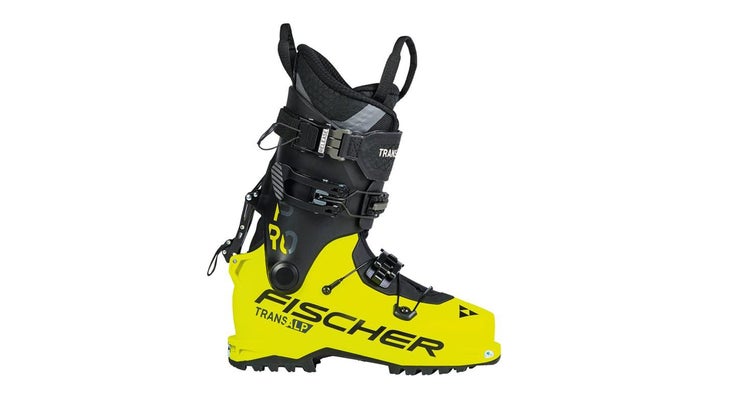
Environmental cred aside, Pebax’s Rnew shell material is also extremely strong. Translation: the Transalp Pro stands up to the abuse of in-bounds bindings. Its liner also has tough Cordura in abrasion-prone zones around the cuff. We love that the walk-mode lever has a jaws-like latch that makes accidental transitions impossible. The boot doesn’t have an official flex rating, but it skis like a 120. Testers liked the ability to adjust the forward lean to 16 or 13 degrees, which you can customize further with the included plastic spoiler.5.6 lbs, 22.5–30.5
